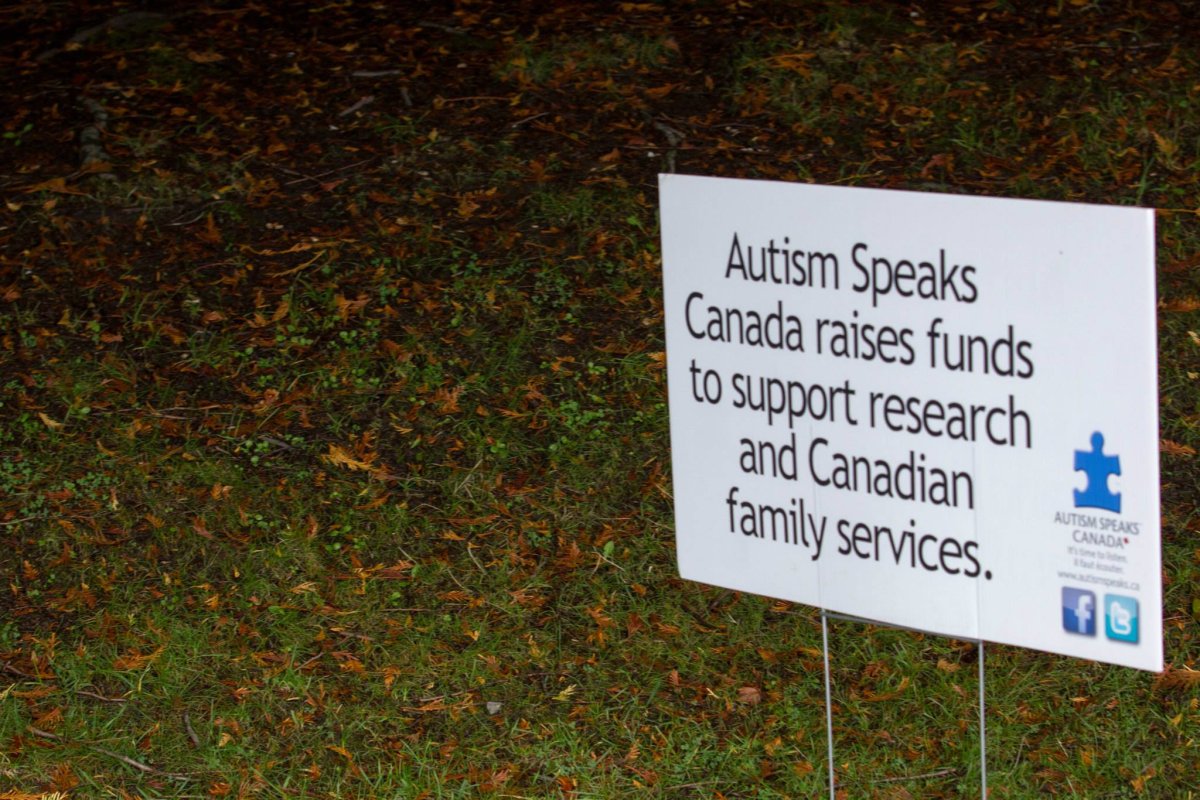April 2 marks World Autism Day and more and more families around the world are struggling to deal with the emotional and financial burden of having a family member who has been diagnosed with autism.

Michael Lewis, president of the board of the Autism Society of British Columbia, and a district councillor of West Vancouver, told Global News that in B.C. one of the most common misconceptions about autism treatment is that it is covered under the Medical Services Plan.
“The reality is, if you’re doing a full-blown intervention program for your child, you could well be spending $40,000 – $60,000 a year and that’s a burden that families bear,” said Lewis.
“The travesty and the tragedy here is that there are interventions that are effective for children and adults with autism that most parents can’t access, because they don’t have the fiscal resources to do that.”
Through the Ministry of Children and Family Development funding programs are currently available to 8,400 children and youth diagnosed with Autism Spectrum Disorder and their families. Currently, approximately 1,400 children under six years of age and 7,000 children and youth over six received funding, compared to only 600 children and youth in total in 2004.
For children under age six, families are eligible to receive $22,000 per year to assist with the cost of autism intervention services, (based on best practices), to promote their child’s communication, social-emotional, pre-academic and functional life-skills development.
For children age six to 18, families are eligible for $6,000 a year to assist with the cost of out-of-school intervention services to promote their child’s communication, social-emotional, academic and functional life skills.
But Lewis said more needs to be done to help these families.
“What’s interesting is that if your child or my child had cancer, we’d just take out our care card,” he said. “When it comes to autism you’re paying for the intervention with after-tax dollars, of which you can claim a medical expense at a federal level, but you know it’s like 13 cents on the dollar. And the reality is, most people don’t have the money to do that.”
“So kids are not getting the level of treatment that they need.”
Once a family has a positive diagnosis for autism of Autism Spectrum Disorder, parents who wish to enrol in the Autism Funding Program may contact their local Ministry of Children and Family Development office to complete an application for funding.
With autism funding, families are able to choose the type of intervention, based on best practice, that best meets the needs of their child. In order to access autism funding for children under six, parents must employ professionals who are on the Registry of Autism Service Providers (RASP). This registry, managed by ACT-Autism Community Training, ensures that parents of young children with Autism Spectrum Disorder have access to professionals with the education, training, and experience that qualifies them to implement intensive, comprehensive, and effective behavioural treatment programs.
Lewis said, on World Autism Day, he wants more people to understand that while there is some funding available, many families with a child with autism are struggling just to make ends meet, and the funding ends at age 18.
“The stories that I hear of people that have mortgaged, second mortgaged, moved back into their second homes as a result of this is just heartbreaking,” he said.
For more information on Autism Spectrum Disorder and the services and supports available, visit the Ministry of Children and Family Development.
For further detail on the Autism Funding process, view A Parent’s Handbook: Your Guide to Autism Programs.
WATCH: Working with kids with autism
Wed, Apr 2 – : April is autism awareness month and today is the national day of recognition. Elaine Tan Comeau, a Vancouver based educator joins us to talk about what parents and educators can do to help children diagnosed with the condition.




Comments